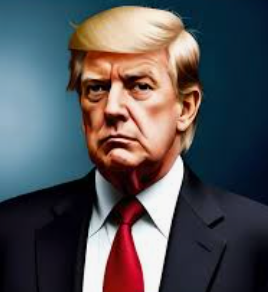$FB $GOOGL $AMZN #DigitalTax #Tariffs #TechGiants #USPolicy #GlobalTrade #EconomicImpact #TechNews #TrumpNews #TradeWar
Will New Tariffs and Chip Restrictions on Digital Tax Nations Boost the Economy?
In the ever-evolving landscape of international trade and economic policies, a new development has emerged that could have significant repercussions for the global market. Former President Donald Trump has articulated concerns regarding the imposition of taxes by various countries on major U.S. tech entities such as Facebook, Google, and Amazon. He claims these taxes unfairly target American technological innovations and prowess.
Trump’s Stance on Global Digital Taxes
In recent trump news, the former U.S. president emphasized that the digital taxes applied by certain countries are discriminatory against U.S. technology giants. These taxes, according to Trump, are not just a burden on the companies themselves but also represent a broader challenge to American economic interests and global tech leadership. This assertion raises crucial questions about the fairness and intentions behind these digital taxes.
Global Economic Implications of New U.S. Policies
Trump’s response to these digital taxes is the proposition of substantial new tariffs and restrictions on semiconductor shipments to nations enforcing these taxes. This move could potentially escalate into a larger trade conflict, affecting not only the tech industry but also various sectors dependent on electronics and digital technology. Consequently, while intended to protect U.S. interests, these tariffs could also disrupt global supply chains and inflate costs for consumers and businesses worldwide.
Analyzing the Potential Outcomes
The proposed tariffs and chip restrictions by Trump are expected to serve as a deterrent against the imposition of digital taxes. However, experts are divided on their potential effectiveness and the overall impact on the U.S. economy. Some argue that protecting U.S. tech companies will help preserve American jobs and promote technological advancements. Others caution that such protectionist measures could stifle competition and innovation, leading to long-term economic stagnation.
Strategic Considerations for the Tech Industry
The tech industry, a pivotal player in the global economy, finds itself at a crossroads. Companies must navigate the choppy waters of international regulations and the changing tides of U.S. foreign policy. How these tech giants respond to these challenges could reshape their strategies and influence their global market positions. Moreover, the global tech landscape might witness shifts in alliances and trade partnerships as a reaction to U.S. policies.
Conclusion: Navigating a Complex Trade Environment
As the situation unfolds, the global community will closely monitor the impacts of Trump’s proposed economic strategies. The balance between protecting domestic interests and fostering global economic cooperation remains delicate. Ultimately, the effectiveness of the tariffs and restrictions will depend on the responses from affected countries and the overall adaptability of the global trade and tech sectors.
In conclusion, the imposition of new tariffs and chip restrictions in response to digital taxes on U.S. tech giants marks a significant moment in U.S. economic policy. As nations around the world react and adapt, the outcomes of these measures will be critical in shaping the future of international economic relations and technological dominance.











Comments are closed.